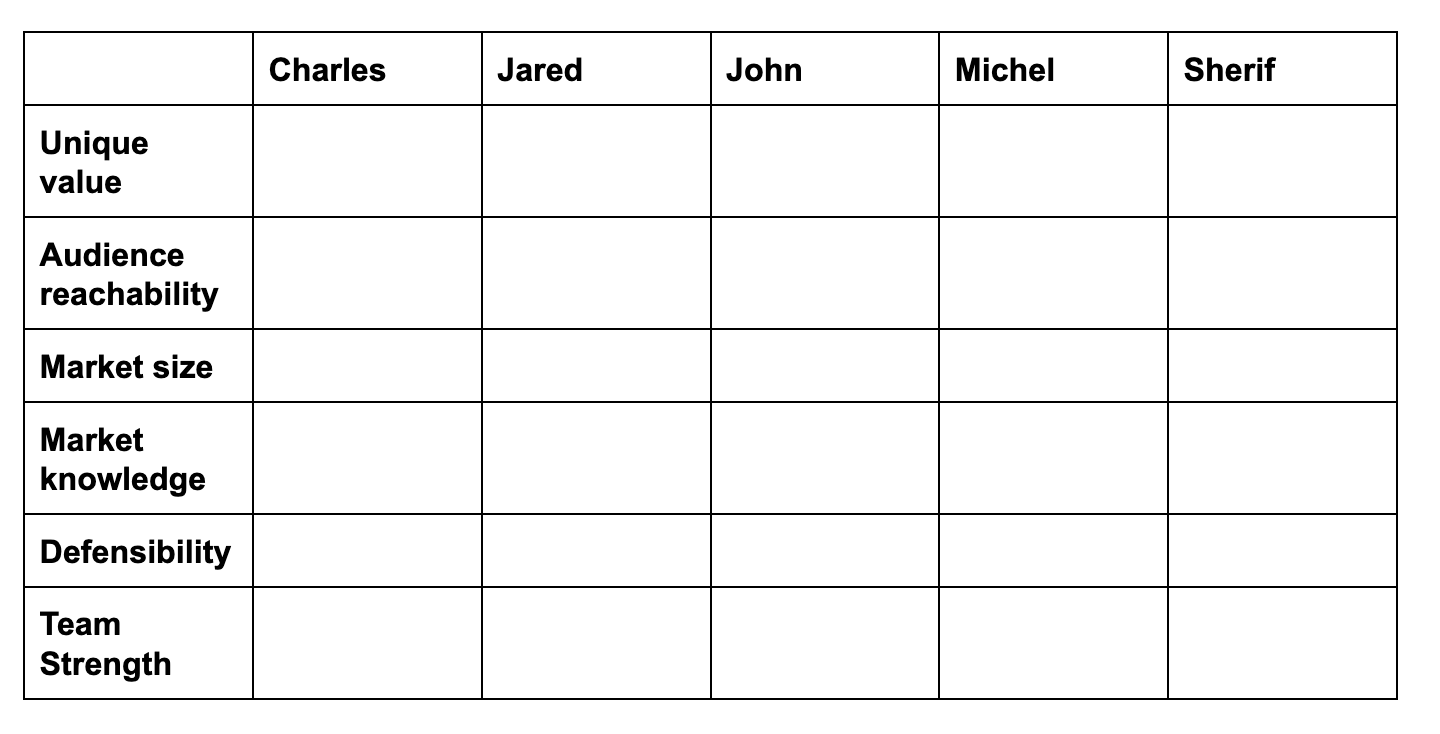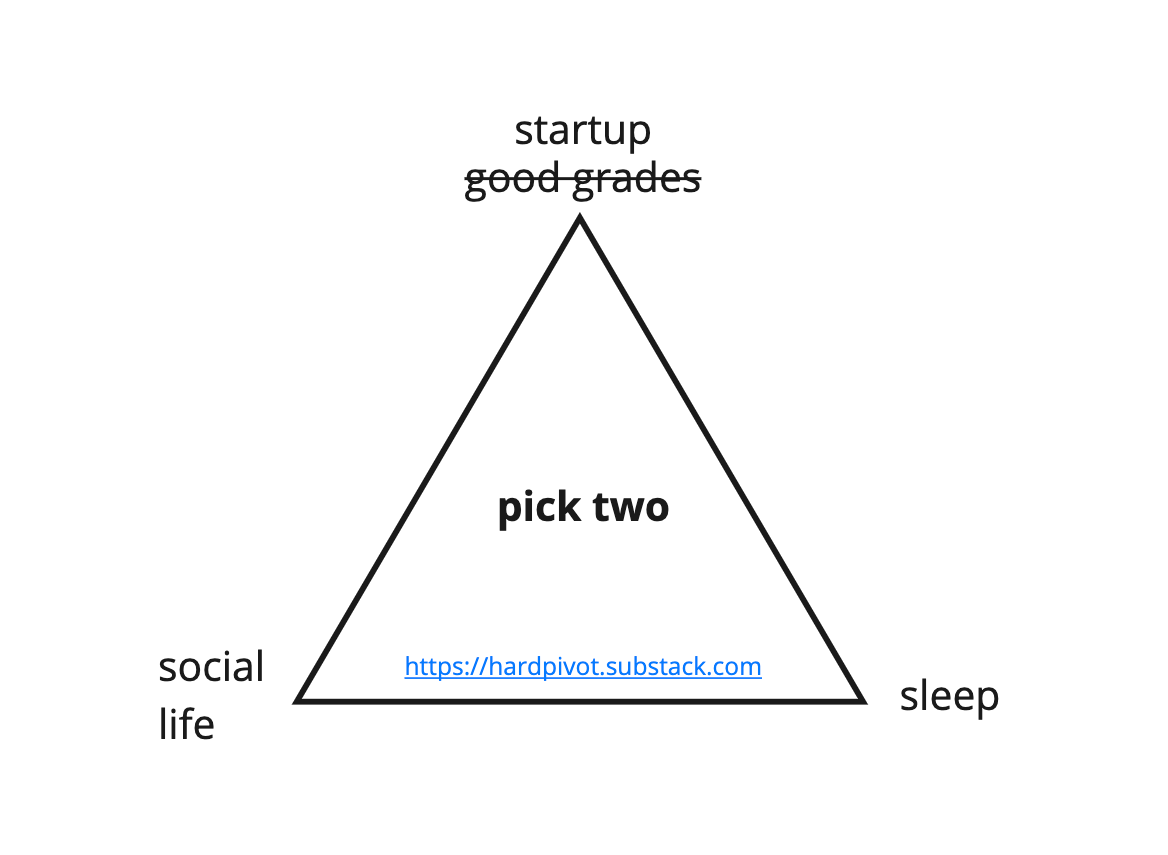I’m pretty excited about the medical tourism market. I’ve spent the majority of my time thinking and talking about it the past 2 weeks.
It raises the question: At what point do I have enough conviction to fully commit to a startup? This is sort of like asking someone: When did you realize you wanted to marry your wife/husband/life partner?
They say it’s a 10 year journey. And even if it ends up being “only” a few years, for those few years, it will become your life.
Some entrepreneurs make this decision with the help of a standard set of criteria.


Some take a more qualitative approach. Ron Bhattacharyay says these are 5 indicators of validation and understanding:
Marc Andreessen’s definition product/market fit. You know it when you feel it. There is more pull and demand than you can keep up with.
Customers are paying for services, and it is profitable or on a clear path to profitability.
You can clearly define the risks of the business, rank them, and systematically address them.
You can communicate strong and unique answers to the question: “Is this worth working on?”
You can fill out a YC application, which forces concise communication.
How I Built Conviction in Athens
For Athens, I didn’t need to work hard to build conviction. The two reasons were:
It was working.
I had conviction (yes, I will make a circular argument).
First, it was working. The demand was rapidly validated by my proof of concept tweet launch of Athens. Athens continued to be validated as I kept shipping, and as our Discord, GitHub, and Twitter grew quickly and consistently. 6 months into Athens, Roam announced a $200M valuation, which gave us more validation and hype by proxy. Athens was further validated with real money when we opened up our OpenCollective and got sponsors even before we released a public beta. Finally, we got into YC and raised a round. Simply put, Athens was working, and when something works, just send it.
Second, I just had conviction. Once I “got” Roam, it was a revelation. Nothing was the same. I saw a world where how we used computers and the internet would be fundamentally altered (if these ideas became mainstream). The conviction wasn’t grounded on substantive evidence, a standard set of criteria, or well-thought-out arguments. My conviction about Athens was grounded in my conviction about a potentially transformative paradigm. My conviction in the new paradigm was grounded in an “A-ha moment” and the sensation of something stirring in my soul. It wasn’t logical, it was ideological.
The more you have of #1, it just works, the less you need of #2, just have conviction, bro. The more you have of #2, the longer you can delay #1, though for how long will vary from person to person and startup to startup.
As a founder/inventor/artist/etc., you are only crazy if it doesn’t work. In fact, you are crazy until it works. Then, you are a genius. The longer you toil before achieving #1, assuming you do, the bigger a genius you are. Maximal examples that come to mind are Galileo, Van Gogh, and Nikola Tesla. These guys died in jail, ostracized, and/or broke. But their brilliance is recognized and cherished centuries later. Crazy-genius-maxxing.
Ultimately, as a founder, you will need #2 at some point, even if you have copious amounts of #1. Life will get in the way. You will get into unfortunate, unsavory situations with investors, employees, the media, internet people, and other founders. Anything that can go wrong will go wrong.
“I'm looking to invest in startups that can screw everything up and still succeed… because the startup will screw everything up.” — Don Valentine
At that point, when any sane person would say you should probably quit, the only thing that will keep you going is your conviction.
When I think of founders, what comes to my mind is not facts and data. In fact, I think of the opposite — stupidity. A stupid, irrational amount of conviction in their mission and vision, in themselves, in their team, in their product, and in who they serve.
When does a founder have enough conviction to commit to a startup? When does a person have enough conviction to commit to a life partner, a co-founder, or a new life / career / country?
When it’s working. But mostly, when they believe.
What do you guys think? Is comparing startup conviction to marriage a poor, tasteless analogy (probably, I’ve never been married)? What was your turning point to get enough conviction to commit to a startup, if there was one?
P. S. Sorry for being 2 days late on this one! I was thinking hard about this topic of conviction. I have lots of notes on medical tourism. This past week, I spoke to an optometrist, a medical tourism startup founder in the UK, a medical tourism solopreneur in Costa Rica, a fertility startup founder, a charter city investor, a stem cell + hormone therapist, an FDA scientist who does clinical trial, and someone who spent $5k on their teeth in Costa Rica instead of $30k! Subscribe if you want to hear about it in the next edition!


